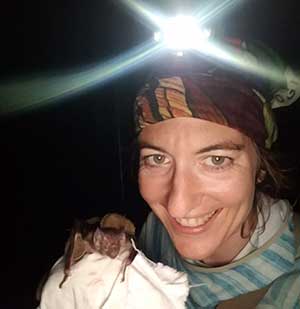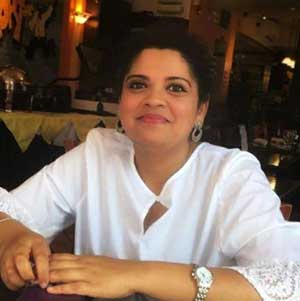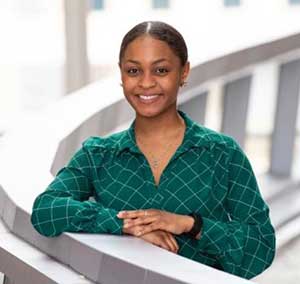Our staff here at iBiology has years of experience providing communication training and guiding speakers as they develop their talks. Still, we don’t always have all the answers, and not every answer works for everyone. Sometimes the people who can connect to trainees the best are the ones who have just gone through the training.

For our 2021 Share Your Research (SYR) workshop, we decided to see if anyone from last year’s winners was interested in coming back as a peer coach. And they certainly pulled through! We had six peer coaches over the course of the workshop, who attended training sessions, gave feedback on practice sessions, and shared their own insights and experiences to this year’s group. Their participation in the workshop was a highlight for both our staff and the 2021 winners. A few of our peer coaches were kind enough to share a few thoughts on the experience from the other side.
Lightly edited for length and clarity.

ALEXA SADIER
I decided to be a peer mentor because I enjoyed the program so much that I wanted to be part of it. I thought my recent experience as a winner could be useful, bringing in another perspective to the 2021 winners. My favorite part was truly to see the new winners framing their talk. I also felt that I have been able to reassure them thanks to my own experience. I also enjoy being able to see how different people use the workshop skills differently according to their topics and personalities and I learnt a lot thinking about this.
I think coaching this session made me a better mentor in general (for example, for the students I mentor in my lab), by being positive and enthusiastic about the learning process.

AMRITA A. IYER
I was actually really anxious about being a coach before the first session! As part of the 2020 group, I had a lot of fun in the process of learning important aspects of giving a good research talk, and I wanted to carry that forward. My favorite part in this whole process was the review session with the mentees. It felt so nice to give them a fresh perspective as an audience and learn some new science at the same time.
This coaching experience taught me how to understand the presenter’s mindset and gave me practice being empathetic while giving feedback. This learning will surely help me fine tune not only the content of my own talks but also the finer aspects like posture, nervousness, anxiety etc.Overall I enjoyed being on both sides and I think iBiology is doing a great job with these talks and the training.

LUZ M. CUMBA GARCÍA
I decided to be a peer mentor because of the impact the course had on my career as well as in the way I prepare presentations. Being a good science communicator is more important than ever before. We don’t realize all of the jargon we use when talking about our research because we are so used to that, but when you listen carefully it’s easier to correct that for yourself and others’ benefit as well. I even identified some things I could improve as a communicator by learning from this year’s participants.
My favorite part was getting to know the participants and their research. I felt a little anxious for them, but they did so great and I was so amazed by the caliber of this year’s participants!

PAIGE GREENWOOD
It was a full circle moment watching the students develop their research talks while providing insight as a peer coach. As a previous participant, I wanted to pour all the support, compassion, and technical expertise in science communication that was given to me into the students. I learned as a peer coach that the guidance we provide to the students can really make a difference in their confidence when presenting their research to an audience.
In addition to those listed above, we would also like to thank Alyssa Adams and Chrystelle Vilfranc for their invaluable contributions as peer coaches.





Leave a Reply